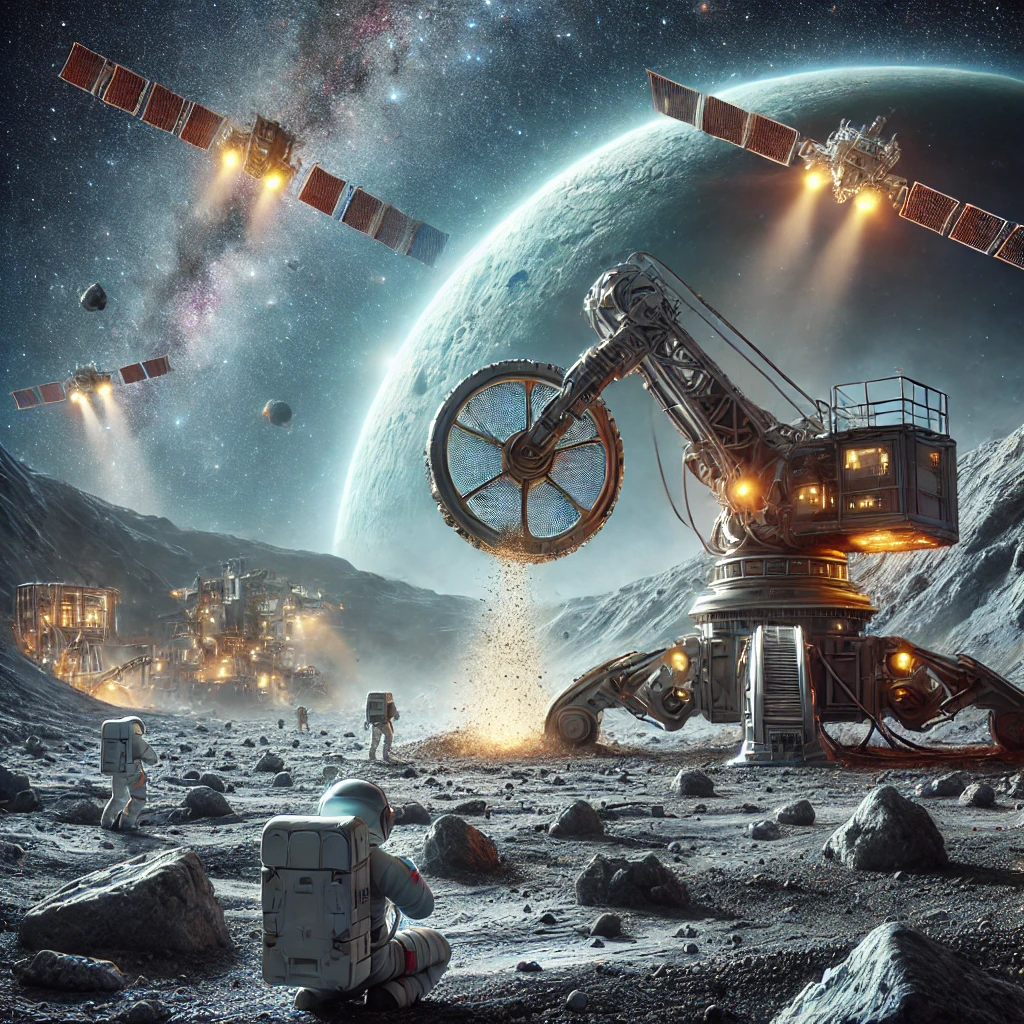What is space mining?
Article Source: Google Books - Space Mining

Why you should care
Space mining is becoming a crucial area of exploration as Earth's resources dwindle. By mining asteroids and other celestial bodies, humanity could tap into vast reserves of rare metals and minerals. This new frontier not only offers solutions to resource scarcity but could also revolutionize industries like technology and energy.
Answering the question... What is space mining?
Space mining refers to extracting valuable materials from space objects such as asteroids, moons, and planets. These materials include metals like platinum, gold, and iron, which are essential for electronics, infrastructure, and energy. With asteroid mining potentially offering trillions of dollars in resources, the stakes are high, making it one of the most promising fields in space exploration.
How was the study done?
The study analyzed different methods of space mining, such as robotic extraction and human-operated missions. Researchers focused on the feasibility of mining various asteroids and moons, collecting data on their composition and proximity to Earth. Several experiments and simulations were used to determine the economic viability of space missions and the potential environmental impacts.
What was discovered?
- Asteroid Composition: Research showed that some asteroids contain significant quantities of platinum group metals, iron, and other valuable elements. For instance, a single metal-rich asteroid could hold up to $10 trillion worth of materials.
- Water as Fuel: One exciting finding is the possibility of using water from space rocks for fuel production. By breaking down water into hydrogen and oxygen, space mining missions could be self-sustaining.
- Automation Potential: The study revealed that advancements in robotics could make space mining more efficient and safer by reducing the need for human involvement. Automated machines are projected to handle 80% of the mining processes.
- Economic Impact: Space mining could generate an estimated $100 billion annually by 2040, making it a lucrative industry for both private companies and governments.
- Challenges: High upfront costs and technological barriers remain, with an estimated $2 billion required to develop the necessary infrastructure. However, ongoing advancements suggest these challenges could be overcome within the next two decades.
Why does it matter?
Space mining holds the potential to reshape our global economy and reduce the strain on Earth's resources. By tapping into the wealth of materials in space, industries could reduce production costs and address resource scarcity. Moreover, it opens the door to sustained space exploration, with fuel and raw materials readily available beyond Earth.
Feel free to explore the article further here: Space Mining - Google Books.
